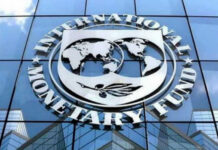The state-run lender logs a staggering Tk 5,054cr loss in 2020; StanChart posts highest net profit of Tk 1,225cr

Net profit in the banking industry plunged 44 per cent year-on-year to Tk 5,279 crore last year because of the massive loss incurred by state-run Janata Bank.
The state lender made a net loss of Tk 5,054 crore in 2020 as it had to keep aside a vast amount as provisions against bad debts, provisional data from the central bank showed.
Standard Chartered Bangladesh posted a net profit of Tk 1,225 crore, the highest among all lenders, in contrast to Tk 1,163 crore a year ago.
The profit for the London-based multinational lender, however, rose to Tk 1,367 crore in 2020 after audits conducted by both the central bank and external audit firms.
The banking regulator has prepared the profitability statement of banks based on the unaudited data provided by lenders. The unaudited data saw changes after audits were carried out by the BB and audit firms.
Last year, the net profit for 28 banks rose while it declined for 21 banks. Ten banks ended the year in the red.
Md Abdus Salam, managing director of Janata Bank, said the lender would apply to the central bank this month to get a regulatory forbearance such that it could keep provisions amounting to Tk 5,856 crore in phases.
“If we are allowed to do so, the net loss will not be there,” he said.
The window of regulatory forbearance allows banks to maintain lower provisions against impaired assets.
The business slowdown stemming from the coronavirus pandemic has not affected the banking industry much as the central bank had offered a loan moratorium facility throughout last year.

This helped contain the upward trend of default loans and give breathing space to banks to keep provisions against expected loan losses.
The central bank, however, compelled banks on December 10 to set aside an additional 1 per cent in provisions against unclassified loans, preventing some from announcing higher profits.
Banks have to set aside 0.25 per cent to 2 per cent as provisions against unclassified loans. It is 20 per cent to 100 per cent against defaulted loans.
Last year, banks also faced a lower credit growth than the previous years as businesspeople adopted a go-slow policy for expansion of their enterprises due to the economic hardship.
Banks’ profitability mainly depends on the disbursement of loans. The interest income on loans declined last year after the central bank capped the lending rate at a maximum of 9 per cent in April.
But, some lenders with a strong presence in the area of retail and technology-based banking service made higher profits.
Naser Ezaz Bijoy, chief executive officer of Standard Chartered Bangladesh, said his bank had focused on ensuring asset quality last year to tackle classified loans.
“A good amount of foreign direct investment flew to the country through our bank. This brought fees and commissions,” he said.
DBBL Managing Director Abul Kashem Md Shirin credited the retail banking operation of the bank for the hefty profit.
In the last several years, the bank rolled out a number of technology-based banking products, which are bringing positive outcomes for the private commercial lender.
The net profit of DBBL fell to Tk 550 crore after the audit programme. It made Tk 480 crore in 2019.
Ten banks posted losses last year, with most of them largely because of scams that caused in the past due to a lack of corporate governance.
The banks that faced net losses include BASIC, Krishi, Rajshahi Krishi Unnayan, Bangladesh Commerce, Community, ICB Islamic, Padma, National Bank of Pakistan and Habib Bank.
Md Ehsan Khasru, managing director of Padma Bank, said the net loss of the bank stood at Tk 350 crore when it was restructured three years ago.
“The net loss is gradually decreasing. We have taken a plan to turn the bank profitable by 2022.”
Padma Bank faced a net loss of Tk 151 crore last year.
Bangladesh Krishi Bank lost Tk 533 crore in the first half of the current fiscal year as the lender calculated the profit on a fiscal year basis.
Md Ali Hossain Prodhania, managing director of Krishi Bank, said the lender had been facing default loans since 2012 when it gave out funds to the non-farm sector.
“Our loan recovery trend from the farm sector is excellent. But, a large amount of fund has been stuck in the non-farm sector, which made it a loss-making bank,” he said.
BASIC Bank lost Tk 366 crore and Bangladesh Commerce Bank Tk 119 crore last year.









